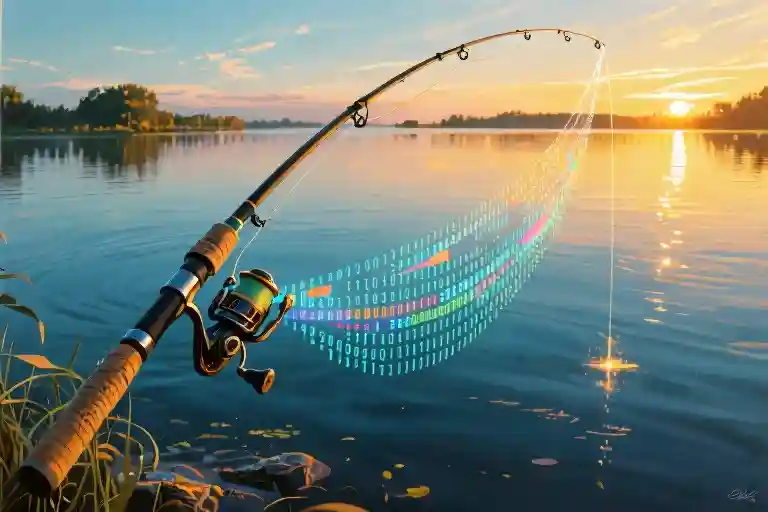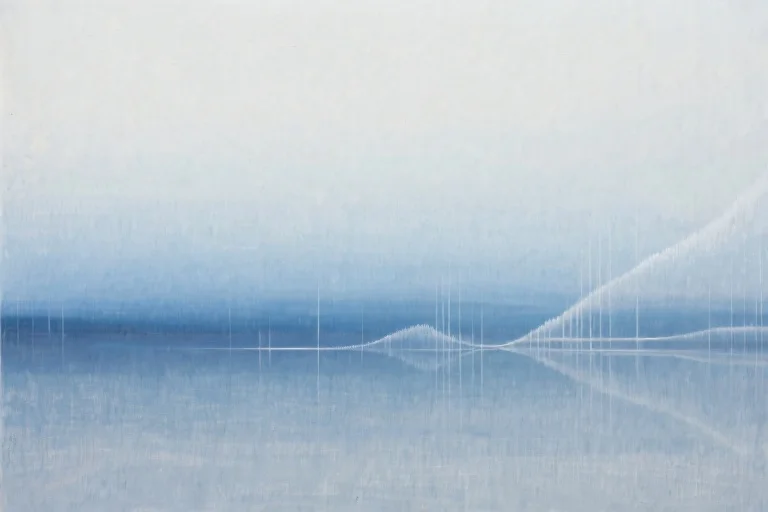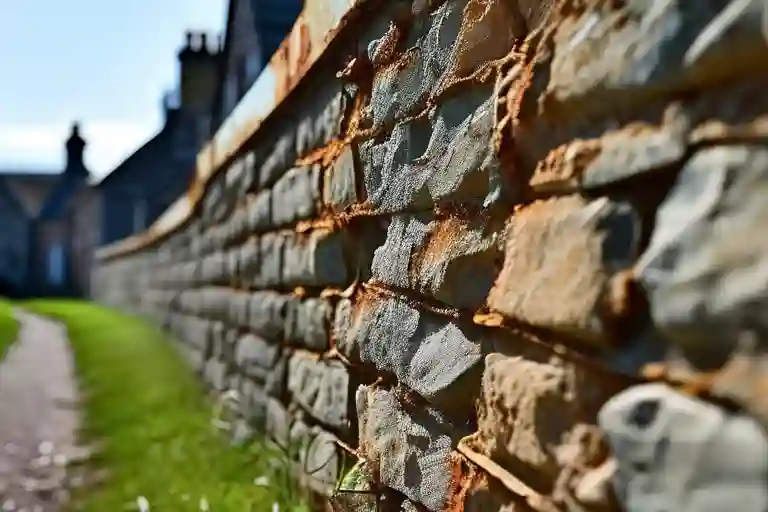The notification arrives like clockwork, same as it has for the past eleven years. LinkedIn’s cheerful banner pops up on my screen: “Congratulate Matt on his work anniversary!”
For a fraction of a second, muscle memory takes over – my fingers twitch toward the keyboard, ready to type some generic well-wishing. Then reality crashes through. Matt hasn’t worked anywhere in over a decade. Not since his truck left the road outside Odessa one ordinary Tuesday evening, turning him into what the oil field workers would call a “downhole casualty.”
The algorithm doesn’t know this. It keeps dutifully tracking his employment timeline, marking each passing year with robotic enthusiasm. In the system’s binary logic, Matt remains perpetually “active” – another data point in the professional network’s sprawling database. His digital ghost continues collecting work anniversaries with a loyalty that puts the living to shame.
I close the notification and suddenly I’m twelve years old again. The Texas heat presses down on our makeshift soccer field as we chase a ball in oversized Umbro shorts that billow like sails. Our black Sambas kick up red dust that sticks to white crew socks. We’re pretending to be someone else, somewhere else – international stars instead of Dallas kids with grass-stained knees. Matt’s laughter carries across the field, louder than necessary, the way boys do when they’re trying on personalities.
But in another universe – one where that stretch of Odessa highway stayed empty that night – Matt isn’t trapped in my memory or LinkedIn’s servers. Right now, he’s standing knee-deep in the warm, opaque water of a Texas lake at dawn, casting his line with the careful precision of someone who’s done this ten thousand times before. The rising sun turns the ripples into liquid gold, and for this suspended moment, nothing exists beyond the arc of his fishing rod and the quiet plop as the lure breaks the surface.
Somewhere, this version of Matt is real. He comes home from the oil fields on Fridays smelling of crude and sweat, kisses his son’s forehead, and spends weekends fixing things that don’t need fixing. His garage holds half-started projects draped with pool noodles like some modern art installation. He attends a Latino church where nobody asks about his partner’s immigration status, where raised hands and whispered prayers paper over the things they never say aloud.
Meanwhile, in this universe, Matt’s digital afterlife continues uninterrupted. His LinkedIn profile has become a peculiar kind of memorial – one that doesn’t know it’s commemorating anything. The internet preserves him not as the vibrant, complicated man he might have become, but as a collection of professional data points and outdated connections. We’ve created a world where death no longer means disappearance, just an awkward, perpetual presence in the feeds and notifications of the living.
The water in my imaginary Texas lake shimmers as Matt reels in an empty hook. Somewhere beneath the surface, the bass move through their shadowy world, unaware of the man above who casts his line again and again, trying to bridge the gap between what is and what might have been.
Oilfield Cartesian
The Permian Basin stretches out like a faded denim shirt, its seams stitched with pumpjacks and mesquite trees. In this alternate universe, Matt’s office is the passenger seat of a company truck, its cup holder permanently stained with coffee rings. His job exists in the liminal space between geography and law – translating mineral rights into spreadsheet coordinates, reducing centuries-old land disputes to cells in an Excel file. The oil company he works for appears on his paycheck as a string of initials, on maps as a tiny polygon shaded beige.
That shop crane in his yard tells its own story. Bought during one of those late-night Amazon spirals when the dread felt particularly viscous, it now stands draped with neon pool noodles like some defeated mechanical beast. The purchase made sense at 2:17 AM – he’d rebuild engines, maybe finally restore that ’78 Bronco rusting behind the garage. But the crane’s yellow paint flakes onto clothes that never quite dried, a monument to the gravitational pull of good intentions. On Sundays, his kid uses it as an improvised jungle gym, dangling from the boom arm while Matt watches through the kitchen window, coffee cooling in his hand.
Church happens in a converted strip mall between a taqueria and a payday loan office. The congregation sways to worship songs in a Spanish he only half-understands, hands raised not in charismatic fervor but because it’s what everyone else does. His partner’s fingers interlock with his during the walk home, their palms slightly damp. They pass the conversation back and forth like a basketball neither wants to shoot – her immigration paperwork, his latest credit card statement, all the things that could fracture this fragile normalcy if spoken aloud. The words dissolve into the hum of cicadas and distant highway noise, becoming as intangible as the shapes they trace in the red dust with their sneakers.
There’s an unspoken agreement to treat their life as a still pond. No stones thrown, no ripples to attract attention. When the ICE audit notices arrive at neighboring businesses, Matt develops sudden expertise in homebrewing. When his coworkers make certain jokes, he laughs at the wrong beats. The shop crane gathers another season of pollen, its unused chains slowly oxidizing in the Texas humidity. Some mornings, driving past the endless rows of identical pumpjacks, he imagines them as chess pieces in a game he never learned to play – all these methodical nods extracting something ancient and irreplaceable while he maps coordinates for parcels that will outlast everyone he knows.
The church’s air conditioning struggles against the summer heat, producing a sound like distant static. During altar call, Matt watches a moth batter itself against a fluorescent light while the preacher speaks of burning bushes and holy fire. His partner’s shoulder presses against his, warm through the thin cotton of her dress. Later, they’ll eat leftover barbacoa standing at the kitchen counter, the refrigerator door ajar and casting a trapezoid of light across the linoleum. The shop crane’s shadow will stretch across the yard as the sun dips below the water tower, its silhouette resembling nothing so much as a question mark drawn in steel.
The Weightless Anchor
Matt’s fishing rod bends toward the water with the same arc his life has taken—a slow curve downward, then the sudden tension of something unseen pulling back. Dawn on the lake is his one reliable ritual, the only hour when the Texas heat relents enough to let a man breathe. He comes here not for the bass, though he’ll take their gaping-mouthed photos like trophies, but for the way the water absorbs his restlessness. The Permian Basin pumps crude oil twenty miles west; here, he pumps his own adrenaline into the murk.
His garage tells the story in abandoned projects: the shop crane draped with pool noodles like some industrial maypole, the half-disassembled truck engine he bought tools to fix but never learned how. Consumerism as existential balm—each purchase a temporary dam against the dread leaking through. The receipts pile up like unread prophecies: $1,200 for a deer rifle he’s fired twice, $800 for waders that still smell of factory plastic. Objects fail him faster these days, their promise of purpose dissolving like sugar in gasoline.
Sunday evenings find him at Iglesia del Redentor, where no one asks why a gringo oil worker brings a woman without papers to a Pentecostal service. Hands raised, they perform the motions of faith while their thoughts drift like untethered balloons—hers toward the cousins in Monterrey she hasn’t seen in nine years, his toward the LinkedIn notification that’ll come again next June like clockwork. The glossolalia washes over them, a language neither understands but both find comforting in its lack of demands. They walk home squeezing each other’s fingers too tight, as if pressure alone could fuse their silent worries into something manageable.
Back on the lake, his bobber trembles. This is the fulcrum he cherishes: the second between potential and disappointment, when the universe narrows to monofilament and heartbeat. He could be anyone here. Might still become someone. The fish, when it comes, will be incidental—another temporary vessel for his need to hold something wild and briefly make it his. He casts again, the line singing through air still cool enough to carry sound. Somewhere beyond the treeline, a pumpjack nods its metallic head in mute agreement.
The Persistence of Digital Ghosts
Every November, like clockwork, the notification appears. LinkedIn’s algorithm, unaware of mortality’s finality, cheerfully prompts me to congratulate Matt on another work anniversary. The same Matt who’s been dead for eleven years. In this digital afterlife, his professional identity outlasts his physical existence, a phantom employee eternally loyal to an oil company in the Permian Basin.
This phenomenon isn’t unique to Matt. Our online lives have created a new kind of haunting. Sonata’s World of Warcraft character still stands frozen in Azeroth, mid-quest. Ben’s Twitter account continues to retweet news articles about football teams he’ll never see play again. Casey’s Instagram remains frozen at age 24, her travel photos accumulating likes from strangers unaware they’re interacting with a digital tombstone.
These digital ghosts follow different rules than our traditional understanding of mourning. Unlike physical graves that weather with time, online profiles often remain pristine. The shop crane in Matt’s parallel-universe yard may rust under the Texas sun, but his LinkedIn profile photo never fades. The bass he catches in that other life will eventually die when thrown back, but his Facebook memories keep circulating like satellites in permanent orbit.
There’s something distinctly modern about this grief. The Voyager spacecraft metaphor feels increasingly apt – these profiles continue transmitting long after their origin point has ceased to exist. With each passing year, the signal grows fainter, the comments fewer, the memories more fragmented. Yet unlike Voyager’s carefully curated golden record, our digital remains are accidental time capsules, filled with inside jokes we can no longer explain and photos whose context dies with us.
What unsettles me most isn’t the persistence of these ghosts, but their gradual transformation. Over time, the comments shift from “We miss you” to “I can’t believe it’s been five years” to eventually just birthday emojis from well-meaning strangers. The memorial posts decrease in frequency while the automated engagements increase. Grief becomes institutionalized by the platforms, reduced to annual reminders and memory features.
In Matt’s parallel universe, he might have upgraded his fishing gear this year. In ours, his digital presence receives its annual system update, ensuring compatibility with newer operating systems. Both versions continue existing in their separate ways – one through my imagination, the other through server farms humming in climate-controlled buildings. Neither is the complete truth, but together they form a peculiar kind of wholeness.
The ethical questions multiply with each new platform. Should we memorialize these accounts? Delete them? Leave them as accidental digital cairns? There’s no protocol for this new form of loss, no etiquette for when LinkedIn’s cheerful notifications collide with human grief. All we have are these imperfect solutions and the quiet understanding that someday, we’ll all become someone else’s notification dilemma.
The Last Transmission
The arc of Matt’s fishing line cuts through the humid Texas dawn, tracing the same parabolic path his digital ghost now travels through LinkedIn’s servers. Eleven years after his body stopped moving, his data remains in perpetual motion – a Voyager spacecraft of the soul, beaming back anniversary notifications instead of golden records. The water ripples where the bass disappeared, leaving no more trace than we’ll all leave in some algorithm’s memory.
What lingers in this circuit afterlife isn’t the substance of who we were, but the artifacts we accidentally left behind. Shop cranes draped with pool noodles. Half-finished engine projects. LinkedIn profiles that still list current positions. The internet has become our collective unconscious, where the dead still change profile pictures and the departed keep clocking in for shifts they’ll never work.
I sometimes wonder about the other ghosts in my machine. Sonata’s abandoned DeviantArt account still displays her high school anime sketches. Ben’s Twitter still auto-posts birthday greetings through some connected app. Their digital fingerprints smudge across platforms they’d probably forgotten they’d joined, each notification a tiny resurrection.
Out on the lake, Matt’s hypothetical son would be learning to cast by now. The boy’s small hands would fumble with the reel, his brow furrowed in the same way Matt’s did when we tried to assemble model rockets that never flew. In this imagined life, the child inherits his father’s unfinished projects – both the physical ones in the garage, and the metaphysical ones of a man trying to outrun his own mind.
Texas sunsets have a particular way of turning the Permian Basin into a circuit board. The oil pumps become resistors, the dirt roads trace copper pathways, and the red earth glows like overheating silicon. As evening bleeds the color from everything, I think about how we’re all just temporary currents in this vast machine. Our signals may weaken, our data may corrupt, but the system keeps relaying messages long after we’ve powered down.
When your own transmission eventually starts its journey through the cosmic static, what coded fragments would you hope survive? Not the polished achievements or carefully curated posts, perhaps, but the unguarded moments – the fishing trips begun before sunrise, the way your hands felt holding someone else’s in a dim church, the half-whispered jokes that never made it online. The things no algorithm can archive, but that might ripple outward through other lives like bass breaking the surface of still water.





